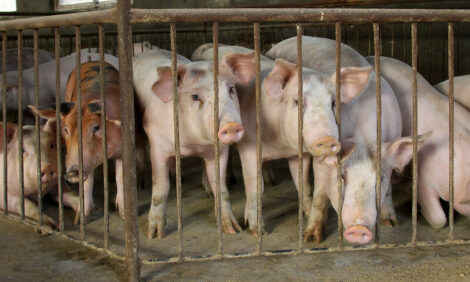



Traceability Project Uses DNA to Improve Genetics
CANADA - The Canadian Swine Health Board and the University of Prince Edward Island’s (UPEI) Atlantic Veterinary College (AVC) have completed the first phase of an innovative research project that analyses swine DNA in order to reduce genetic defects and disease in Canadian swine herds.
The programme uses the DNA TraceBack® system from IdentiGEN Canada Ltd. to trace parentage of individual hogs in order to make associations between incidence of on-farm swine mortality and the genetic relationship of the chosen sire at the boar stud.
Funded by the Canadian Swine Health Board, the study is the first Canadian research project to establish an accurate, rapid feedback loop from commercial production to swine genetics. This process will ultimately create a platform to increase the accuracy of on-farm research, allowing researchers the option of including the animal’s parentage as part of their analysis.
“There is an opportunity in Canada to improve the effectiveness of our response to on-farm mortality. Our current inability to efficiently trace the parentage of individual hogs prevents the use of information collected about the animals or the pork products for genetic selection,“ said Dr Daniel Hurnik, UPEI’s Industry Chair for Swine Research, and Associate Professor in AVC’s Department of Health Management. “This project facilitates faster improvements for the industry and extends benefits for the whole pork industry.“
UPEI is working closely with Premium Farms, Magnum Swine Genetics Inc. and Dunsbergen Farms to implement the necessary on-farm protocols for DNA sampling. Using its DNA TraceBack system, IdentiGEN has successfully analysed samples from the participating farms, establishing the commercial viability of its solution to trace swine parentage. The next phase, to be completed by the end of 2012, will focus on using the generated data to aid Canada’s swine producers in making genetic choices.
“If we can trace the parentage of animals that are not commercially viable, and match them to their sire, we can create an immediate way to impact both quality and disease prevalence through sire choice,“ said Hurnik.
Andrew Beusekom, general manager of Magnum Swine Genetics Inc., a CFIA-certified semen producer in Fort Macleod, Alberta, that supplies pork producers throughout Canada, believes this project has the potential to identify individual boars that may be contributing to less desirable traits in their progeny.
“For the commercial sector of the swine industry, the elimination or reduction of such traits could have a significant impact, both in management and monetary value. As an Artificial Insemination Unit, this project may allow for the unique evaluation of individual boars, by providing the information needed to make crucial management decisions, including culling and selection of genetic lines,“ he said.






